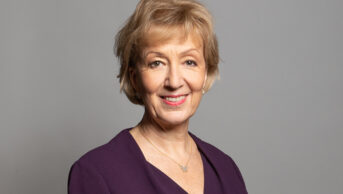
Shutterstock.com
Pharmacists have been added to the Home Office’s shortage occupation list, following a recommendation from the department’s Migration Advisory Committee.
The inclusion of pharmacists in the shortage occupation list from 4 March 2021 makes it easier for staff from abroad to successfully apply for a skilled worker visa through the UK’s immigration system.
This comes after the committee decided against recommending pharmacists for inclusion on the shortage occupation list in 2019, saying there had not been enough evidence to demonstrate a shortage.
However, in its report published in September 2020, the committee said it had received evidence from two stakeholders that suggested there is “a national shortage in this occupation due to a decline in the number of pharmacy graduates and increasing demand for their services”.
It noted particular recruitment difficulties in the south east of England, with living costs in Surrey “similar to that of London, but [pharmacists] did not benefit from the Agenda for Change (NHS pay scales) London weighting”.
The report added that stakeholders had “undertaken a variety of measures to fill vacancies including increasing training and recruitment initiatives, redefining job roles, bringing in contract workers as well as recruiting non-UK nationals”.
“Stakeholders stated that some of these measures such as increasing recruitment and training, had been effective,” the report said.
“They were uniform however, in stating that recruiting non-UK workers had been very effective in alleviating shortages.”
The committee said that “the evidence in terms of vacancies is mixed: the vacancy to employee ratio has generally been lower than the median across all occupations but has exhibited a noticeable upward trend in recent years”.
But the profession had been recommended, in part, owing to its “important role in addressing the ongoing challenges of the COVID-19 pandemic”.
Under the UK’s immigration system, people applying for a skilled worker visa must reach 70 ‘points’ to be eligible.
Applying for a job on the shortage occupation list is worth 20 points. This — combined with the mandatory criteria of having an acceptable standard of English, an offer from a licensed sponsor and the required skill level, which are worth 50 points — will ensure people in these roles reach the necessary number of points.
Sandra Gidley, president of the Royal Pharmaceutical Society, said the pandemic “has shown just how vital a role pharmacists play in supporting patient care”.
“It’s important that our health service has the right workforce, and this list recognises that there is a growing demand for pharmacists’ expertise, particularly in new roles across primary care,” she said.
“We must all work to ensure that the UK remains an attractive place for the world’s best talent to come and work in. There is a real need to invest in clinically focused education and training to ensure a strong pipeline of recruitment that will help to grow our workforce.”
1 comment
You must be logged in to post a comment.



The question is why the UK do not consider recruiting the refugee pharmacists who are already live in the UK for so many years and cannot get back to their job in any way due to the overcomplicated rules and regulations. I am one of these people and I know so many pharmacists as me. You already have good assets but unfortunately no one would help.